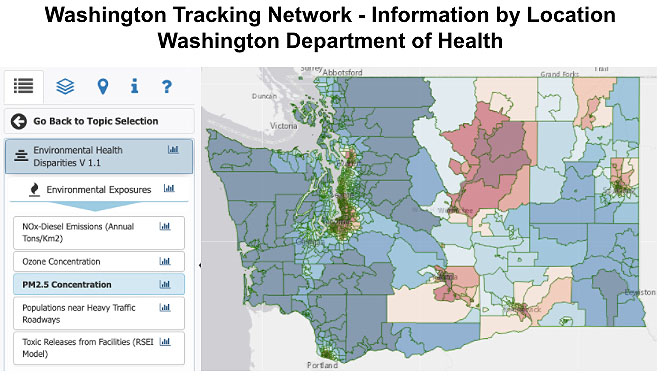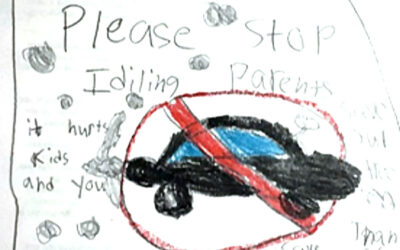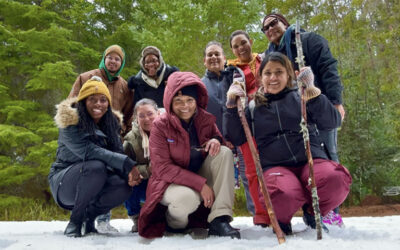Exposing students to real data connected to their lives and their communities is a hallmark of the NGSS science and engineering practices. In the spring of 2021, DOH epidemiologists partnered with a professional development provider from Puget Sound ESD to produce five, mini professional learning modules to help teachers design student activities that 1) inspire and connect them to real world health & environmental data, and each other, (2) promote clean air, land, and water, (3) promote the use of the Washington Tracking Network (WTN) data mapping system, (4) support equitable, 3-dimensional learning, including the use of community wisdom to solve public health issues, and (5) use science for student action and leadership in response to current and historical misuses of science.
Each of these modules provides guidance on how to use the Washington Tracking Network (WTN) mapping tool to find data that answers important personal and community questions. Two of the modules focus on health including climate change impacts on asthma, and on pregnancy and low birth weight. The other modules provide teacher support to help students analyze and interpret WTN data (SEP 4), use the maps for community engagement, or to develop their own explorations.
These mini-modules can be found on OER Commons.




